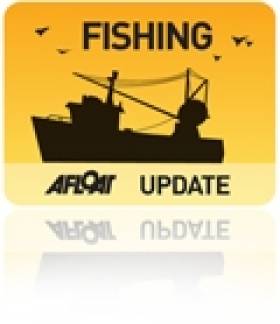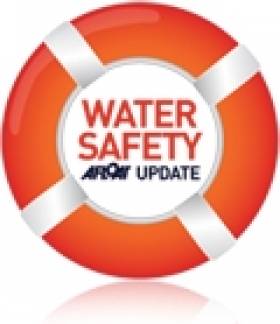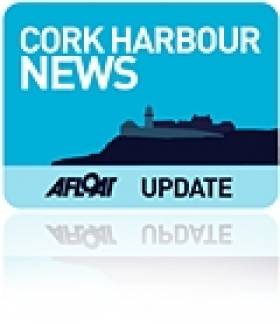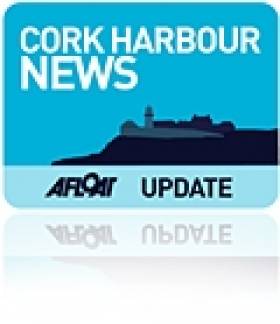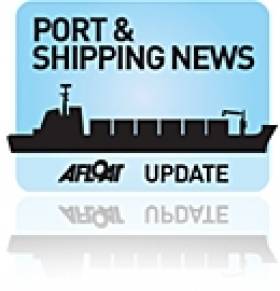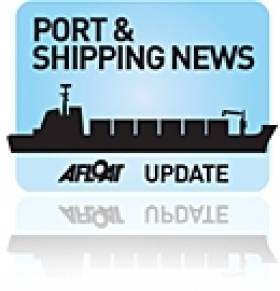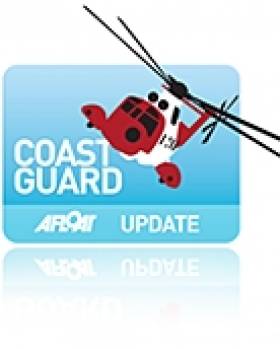Displaying items by tag: Minister for the Marine
Minister Shows Displeasure With Euro Fishery Plans
#FISHING - The Minister for the Marine has spoken out over plans by the European Commission to make cuts in certain fish stocks that could see €65 million in lost earnings for Ireland's fishing fleet.
According to The Irish Times, Minister Simon Coveney said there was "very credible data prepared by the Marine Institute to back up" the case against proposals by EU maritime affairs commissioner Maria Damanaki to cut certain stocks by as much as 25%.
He told the paper he would "challenge anyone to say we are not sticking with scientific advice", and also suggested that the fishing industry is being more responsible in its own proposals.
"The European Commission is recommending a 60 per cent increase in the total allowable catch for Celtic Sea herring, whereas the industry is seeking 30 per cent as a more responsible approach,” said Minister Coveney.
“So this shows it is not true to say that fishermen are irresponsible, as some would suggest."
EU fish talks continue today in Brussels. The Irish Times has more on the story HERE.
Fatality Rate for Fishermen An 'Absolute Tragedy'
Fishermen and farmers make up more than half of all work-related fatalities in Ireland, according to the Minister for the Marine.
As The Irish Times reports, Simon Coveney TD decried it as an "absolute tragedy" in the Dáil.
He noted the progress being made in encouraging people to wear safety gear when on the water, but said there was "little or no progress in getting fishermen to wear lifejackets”.
"For some reason fishermen seem to think they will never fall in the water," the minister commented.
Cork South West TD Noel Harrington also raised the point of the Department of the Marine's refusal to use personal beacons that directly signal emergency services, rather than emergency position indicating radio beacons (EPIRB).
He referred to the capsizing of the Rambler 100 yacht in the Fastnet Race in August, saying that the latter did not go off to alert the coastguard as the boat had not sunk.
Govt Signs Off On €40m to Clean Up Haulbowline Waste Site
The Government has signed off on a €40 million package to begin clean-up of the toxic waste site on Haulbowline Island in Cork Harbour, the Cork Independent reports.
As previously reported on Afloat.ie, the site at the former Irish Steel/Ispat plant - which closed a decade ago - contains an estimated 500,000 tonnes of waste, including toxic heavy metals and cancer causing materials, and has been blamed for the area's notoriety in having one of the highest cancer rates in Ireland.
The move comes after an ultimatum from the European Commission earlier this year to act on cleanup of the island.
Mary O'Leary, chair of the Cork Harbour Alliance for a Safe Environment (CHASE) lobby group, is cautiously optimistic about the Caninet's move on the issue, but said "the proof of the pudding is in the eating".
She told the Cork Independent: “Obviously we welcome the announcement, we have been fighting for 15 years for this. It is a guarded optimism because we were promised something in 2008. We didn’t see anything then so we will see what happens here."
O'Leary has been invited to join the steering committee that will oversee the cleanup.
“It is in all our interests that a solution is found for the former Ispat site," said Minister for the Marine Simon Coveney, "and I am determined to ensure that there are no further delays in finding a solution."
The Cork Independent has more on the story HERE.
Limerick to Host New Boatbuilding Degree Courses
A new scheme to teach traditional boatbuilding skills to university level could be of huge benefit to young people from disadvantaged areas of Limerick.
The Irish Times reports that degree programmes in traditional boat craft accredited by the UK's University of Middlesex are set to take their first students in 2012.
Minister for the Marine Simon Coveney also confirmed that partnerships have been developed with the US Northwest School of Wooden Boat-building and Sail Training International.
Some 40 trainees, mostly from Limerick's designated regeneration areas, have already taken part in the restoration of the ketch Ilen, designed by record-breaking sailor Conor O'Brien.
The AKA Ilen project, set up by boat-builder Gary McMahon, is intended to "nurture self-belief and confidence through the medium of wooden boatbuilding and maritime education".
The Irish Times has more on the story HERE.
Ocean to City, Cork Harbour's annual maritime festival, takes place this year from 3-12 June.
The yearly celebration of Cork’s maritime history and its unique harbour begins on Friday 3 June when members of the public can voyage through the city by kayak, enjoy the thrill of a sea safari trip around Cork Harbour or follow TG4’s Padraig Ó Duinnín as he presents a historical walking tour and talk on rowing in Cork.
The highlight of the festival, An Rás Mór, takes place on Saturday 4 June and will see boats of all sizes row 15 nautical miles from Crosshaven via Cork Harbour, Monkstown and Blackrock before finishing at the boardwalk in Lapps Quay in Cork.
Around 400 Irish and International rowers will compete in a diverse range of vessels including dragon boats, kayaks, currachs, Celtic long boats, Cornish pilot gigs and Irish coastal rowing boats.
Sunday 5 June will see a special 10km kayak race through the city centre. The Irish Naval Service flagship LE Orla will also offer free public tours, while Meitheal Mara will host a guided voyage around the island of Cork by a variety of small craft.
To mark the Cork Harbour School and Heritage Trails Weekend from from 9-11 June, a series of events highlighting the attractions of Cork Harbour, both water and land based, will take place.
Activities include a summer school on the theme of 'recreation in a working port', which will be held in the Port of Cork on Friday 10 June and opened by Minister for the Marine Simon Coveney.
For more details visit www.oceantocity.com.
Varadkar Supports Deepwater Port at Bremore
Drogheda Port Company successfully managed to navigate the global economic downturn with an improved and solid performance for 2010, delegates where informed during its annual report released yesterday, writes Jehan Ashmore.
Speaking about the performance of Drogheda Port Company, Leo Varadkar TD, Minister for Transport, Tourism and Sport said; "I congratulate the company on its solid trading performance in 2010 following a difficult year in 2009. Both imports and exports through the port returned to growth in 2010. The company has managed its costs well and remains profitable. I support the company's plans to develop the existing port and indeed to continue to progress its proposal for a new deepwater port at Bremore.
The Minister added "this country's return to economic prosperity will be export-led and Irish ports will play an important role in facilitating that trade. The overall structure of the State's ports will be reviewed later this year as part of the current Ports Policy Review and will take account of the recent recommendations of the McCarthy Group. Irrespective of the outcome, well managed and profitable ports such as Drogheda will continue to play an important role in serving the market and facilitating industry and jobs.
As part of the ongoing the Ports Policy Review a Consultation Document was issued in October 2010, which highlighted the important role of ports to facilitate the return to economic growth when it occurs. In addition new capacity will be required in the medium to long term and this needs to be planned for now.
The consultation also acknowledges the continuing trend towards larger ships requiring deep-water ports, the reduced availability of ships to serve smaller ports and the emergence of the concept of port-centric logistics as a key driver for future port development.
As for this year "a number of new port records were established in 2010" said Mr. Paul Fleming, Drogheda Port chief executive. "In March, the longest ever vessel to be accommodated in the port, the Rusich 1 at over 128m in length berthed at Tom Roes Point Terminal". The 4,970 tonnes vessel arrived from Vyborg, Russia with a cargo of fertiliser.
Mr Fleming also referred to the largest gas tanker ever to visit its facility at the Flogas LPG terminal when the 1,720 dwt tonnes Thresher docked last October. The Dutch flagged Thresher had arrived loaded with a cargo from the Whitegate Refinery, Cork Harbour and is operated by Chemgas which operate one of the most modern gas carrier fleets in the world.
In addition to last year's performance, first quarter figures for 2011 were revealed with trading volumes reporting an increase of 18% based from the same quarter for last year. The rise was primarily driven by export volumes of existing and new commodities.
Tributes Paid to Cork Boat Builder George Bushe
Sailing tributes have been paid to legendary boat builder George Bushe, who died last week aged 89.
Born in Baltimore, Co Cork, Bushe got his start in boat building through his father, who make traditional punts. From there he went on to Skinner's Boatyard in Skibbereen and worked with the late Jack O'Driscoll in Ringaskiddy.
In the 1960s and '70s he worked at the Southcoast Boatyard in Rochestown, where be built many famous racing boats for Cork's premier sailing clans - such as the Golden Apple for the late Hugh Coveney, father of Minister for the Marine Simon Coveney.
Bushe went into semi-retirement in the 1970s, working at the Royal Cork Yacht Club, restoring boats in winter and even racing his own until the mid 2000s.
His remains were carried to St Patrick's Cemetary in Crosshaven aboard the Cánóg, the last boat he completed and which he raced competitively as recently as 2006.
George Bushe is survived by his wife Carmel and their children: Bernice, Fergus, sail maker Majella, shipwright Mark, and boat builder and sailor Killian Bushe, who just last month received the Fastnet Award for his own contributions to sailing.
The Irish Examiner has more on the story HERE.
Inspection of Refloated Ship in Galway Bay Under Way
Marine surveyors are currently inspecting the German cargo ship which was refloated yesterday in Galway Bay after running aground early on Thursday.
The Irish Coast Guard confirmed to The Irish Times that no pollution had occurred in the grounding of the Pantanal on the south Connemara coast.
The 120m vessel was refloated at high tide yesterday morning with help from the Celtic Isle tug from Foynes in Co Limerick.
Ship managers Harren & Partner said the hull would undergo a diver inspection before the vessel sails for dry dock.
Yesterday Minister for the Marine Simon Coveney welcomed the "successful operation in very challenging conditions" and confirmed a thorough investigation of the incident by the Marine Casualty Investigation Board.
The ship had been sailing from the Mediterranean to Rossaveal to collect two monohull ferries, sold to Mauritius, that had been built to serve the Aran Islands route.
The Irish Times has more on the story HERE.
Marine Minister to Have Air-Sea Rescue Remit
Minister for the Marine Simon Coveney will have the remit for air and sea search and rescue services, it has emerged.
The Irish Times reports that the move is part of a promised consolidation of maritime functions under the new programme for Government.
Responsibilty for the Irish Coast Guard will however remain with Minister for Transport Leo Varadkar until an official transfer which is expected in the next few weeks.
Meanwhile, fellow Fine Gael TD and Minister of State for NewEra, Fergus O'Dowd, intends to push for a review of the State's €500m contract for search and rescue services with CHC Ireland.
O’Dowd said there were “significant questions to answer” over the deal signed by former Transport Minister Noel Dempsey last year.
The Irish Times has more on the story HERE.



























